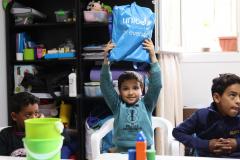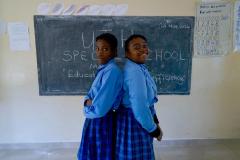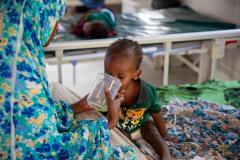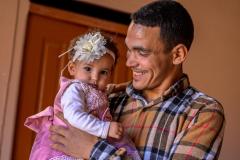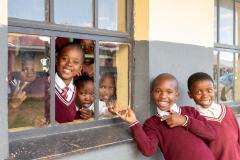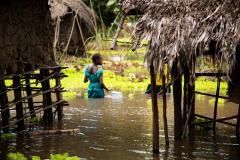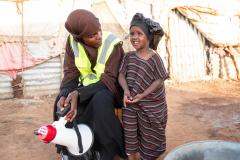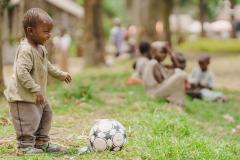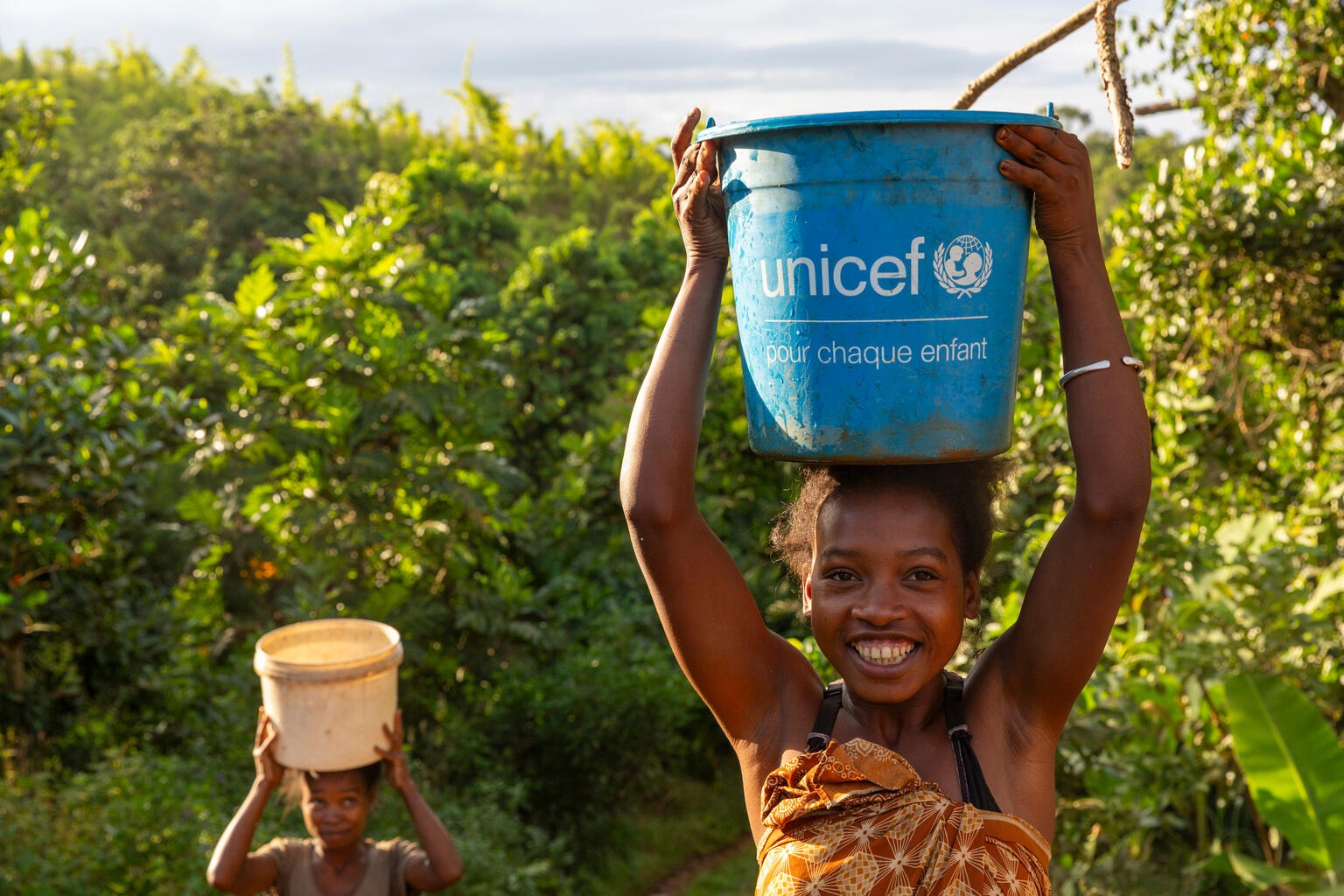
By the end of the century, it is projected that Africa will be home to nearly half of the world’s children. That’s why UNICEF’s work there is so important, as we try to build a better future for every child. Since the early years of our founding, we have worked in close partnership with African governments, organisations, and communities to save children’s lives and create better futures for families. Our work spans the continent, organised into three regions: West and Central Africa, Eastern and Southern Africa, and the Middle East and North Africa.
For more than half a century, UNICEF has been on the frontlines of Africa’s most critical moments: during the Ethiopian famine, we fought starvation; under apartheid in South Africa, we worked through non-governmental organisations to reach the most vulnerable; and after the Rwandan genocide, we created safe spaces for children separated from their families.
Today, we remain steadfast in the face of ongoing crises – from Sudan to the Democratic Republic of Congo – continuing to protect and support children in the most challenging circumstances. But Africa is not defined by crisis alone. Across the continent, UNICEF is not only keeping children safe – we’re helping them grow, learn, and thrive. Always in partnership with local communities, we are working to unlock the full potential of every child in Africa.
North Africa
In the north of Africa, UNICEF works in Egypt, Sudan, Libya, Algeria, Tunisia, Djibouti and Morocco.
In Egypt, almost one million refugees from over 60 countries have sought shelter from various crises, and UNICEF is helping them find safety. We provide education for children like Farah, 11, and her sister Marah, 9, who were forced to flee their home in Syria, and work with the government of Egypt to support Palestinian children.
In Algeria too, UNICEF supporters are enabling us to educate children – children like Adam, 12, who has autism, but can still take part in classes and realise his potential thanks to a UNICEF Adolescent Toolkit for children with disabilities.
It is in Sudan however where UNICEF is particularly focused in North Africa, saving children from what is the world’s worst humanitarian crisis. Thousands of children are living in famine conditions, and UNICEF is on the ground now providing emergency food, safe water, and healthcare to millions of people.
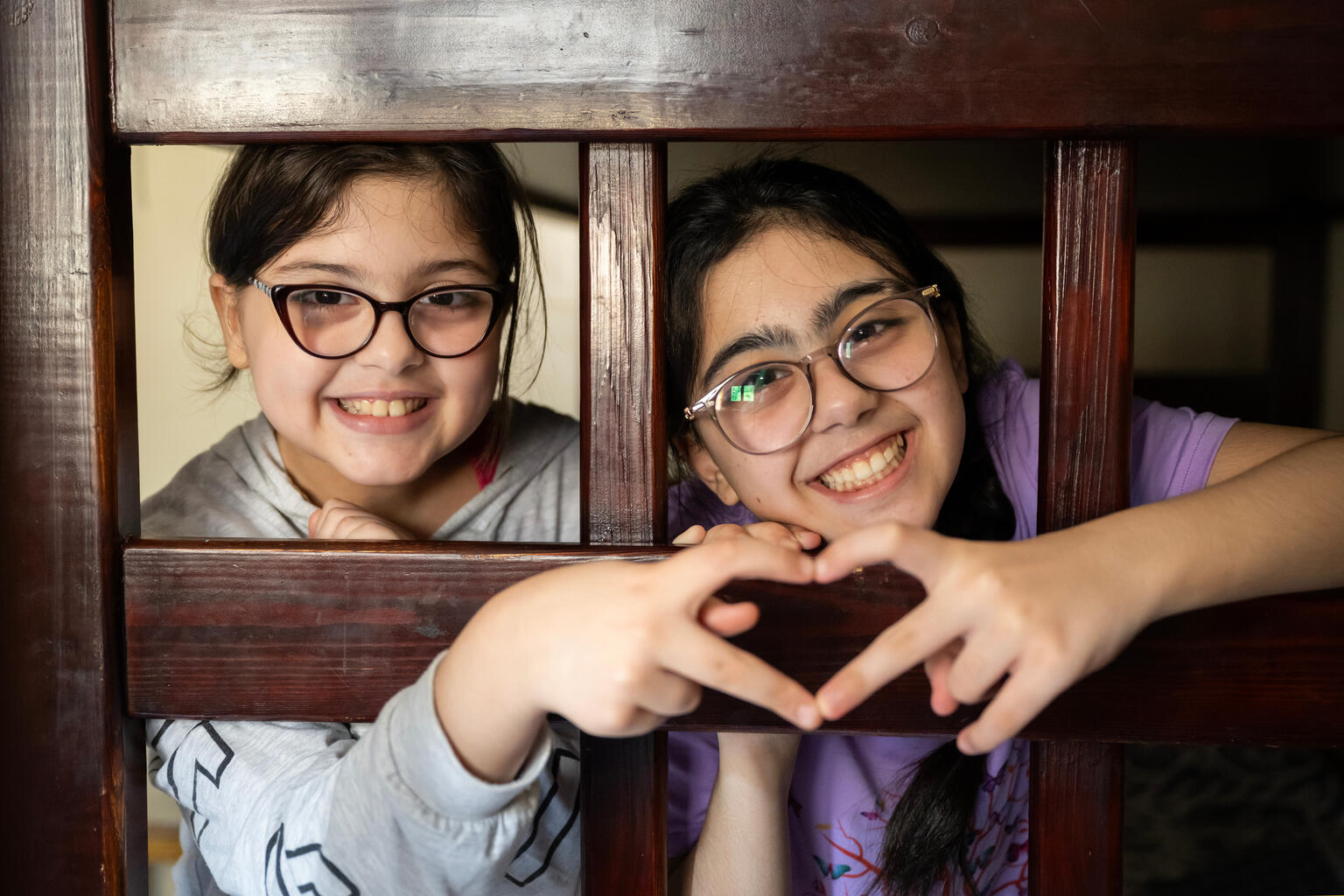
A critical 1000 days in Sudan
"When I brought my daughter, she was very sick. Her body was weak, and her eyes looked tired,” Amal said of her baby daughter Yadin. “But since she started taking food supplement, she has begun eating well.”
The first 1,000 days of a child's life offer a critical window of opportunity, laying the foundations for health and well-being for a lifetime. Yet for many children in Sudan, these crucial early moments of life have been overshadowed by two years of conflict and violence.
UNICEF has provided malnutrition screening to over 5 million children in Sudan, including lifesaving treatment for 288,000, and with support from people like you, we can continue to save the lives of children like Yadin.

West and central Africa
UNICEF works in 24 countries in west and central Africa, focusing on three key stages during a child’s life: the early years in the community, the school years and adolescence. Thanks to our supporters, we can combat malnutrition, deliver vaccines, facilitate access to education – especially for girls – deliver water and sanitation and protect children from violence and abuse.
At UNICEF, we also think it is important to enable local communities to take control and shape the future. That’s why we support changemakers, ordinary men and women who do extraordinary things for one reason: to create change in their own communities and realise their vision for Africa
They include Jide in Nigeria, an artist who creates African superhero comics to inspire children, or Amy from Mauritania, a painter who uses her artwork to combat violence against women. “Even in the home you see women suffering violence but not daring to talk about it,” Amy said. “They prefer to keep it to themselves, to hide it away. I think this is wrong and my aim is to help.”
Thanks to our supporters, UNICEF can take these multifaceted approaches to not only saving children across Africa, but helping build a better future.
In photos: UNICEF in Africa
Eastern and Southern Africa
At least 51 million children across Eastern and Southern Africa face multiple crises.
The situation is getting worse, with 20 of the 21 countries in the region facing public health emergencies, flooding, drought and outbreaks of diseases like cholera and malaria.
But thanks to our supporters, UNICEF is working across all of these countries, combating the crises, and saving children’s lives.
Children like 6-month-old Lauren, from Malawi, who was diagnosed with severe malnutrition. Lauren was admitted to an outpatient therapeutic programme and is now recovering. With ongoing support, she will grow up healthy and be able to contribute to a better future for Africa. With the help of our supporters, UNICEF’s goal is to provide this security for every child across the continent.
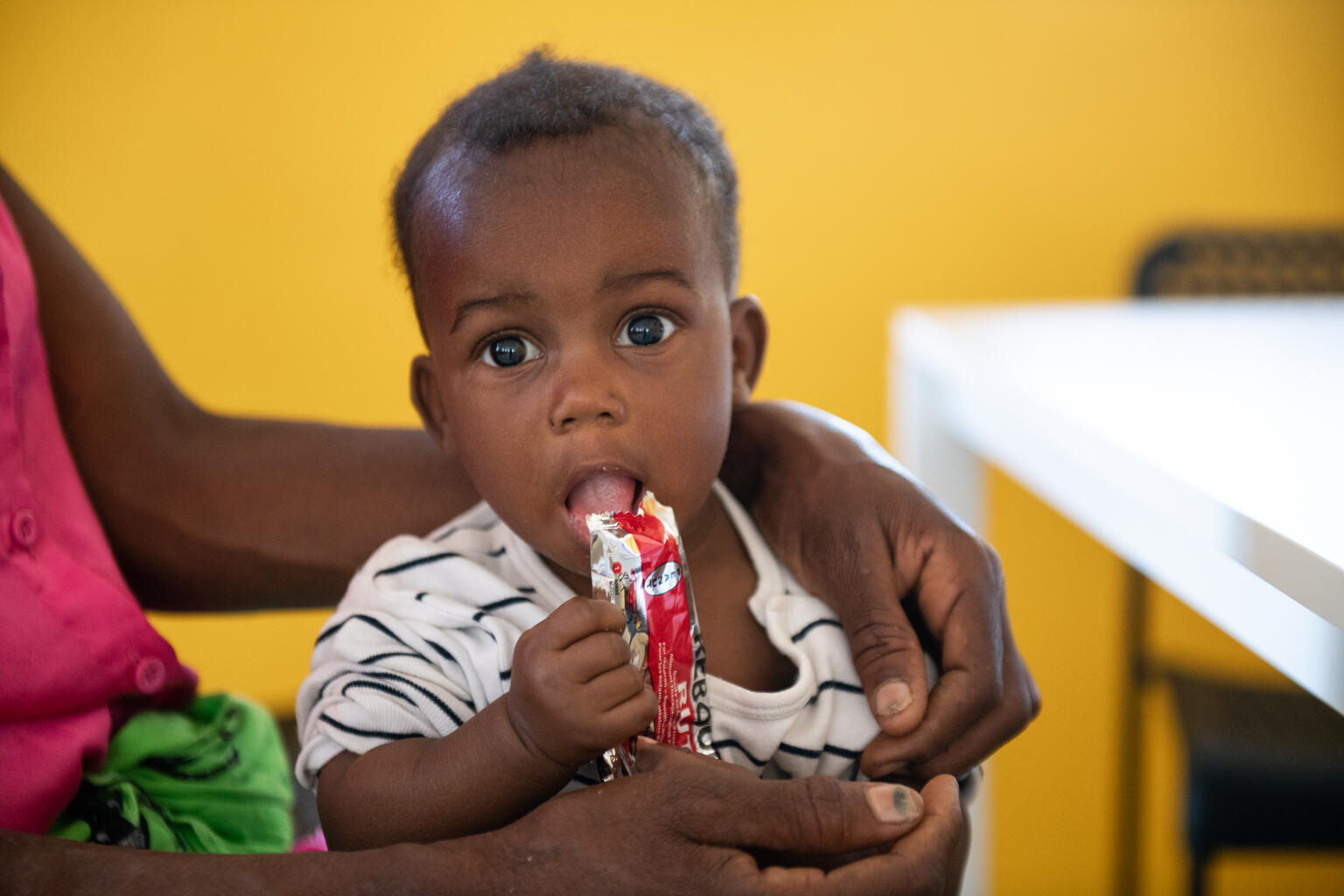
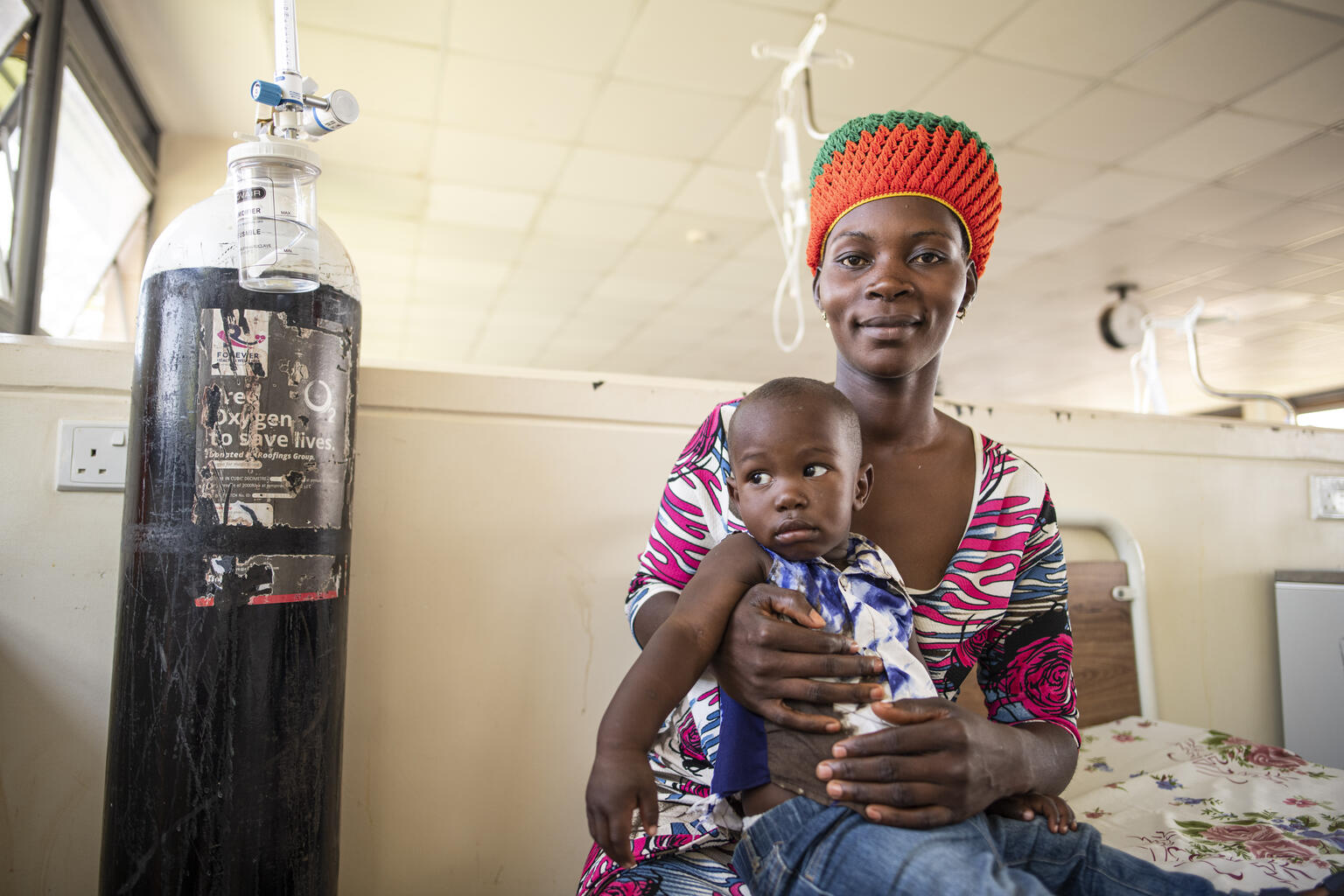
Innovation in Africa
At UNICEF, we strive to take the most forward thinking, effective approaches to helping children. That’s why we make innovation a key part of our work. In Africa, this allows us to draw on the incredible talent and ingenuity across the continent to enable children and families to thrive.
In Uganda, a simple yet powerful innovation is a perfect example of this. Known as the Oxygen Plant-in-a-Box, this all-in-one solution provides hospitals with a rapid way to generate and deliver medical-grade oxygen – essential for treating pneumonia, the world’s deadliest infectious disease for children.
One such plant, recently installed in a Ugandan hospital, played a crucial role in saving six-month-old Constance, who was struggling to breathe due to pneumonia.
The system includes an oxygen generator, air compressor, tanks, cylinders, and staff training, all designed to get facilities up and running in days. UNICEF aims to reach around 15 million people using the plant-in-a-box, addressing critical oxygen shortages in Uganda’s healthcare system, especially in remote areas, and representing a lasting investment in child health.
Can you help children in Africa?
Supporting UNICEF today means you can help children across Africa. By giving a gift, particularly a monthly gift, you allow us to work fast in emergencies to save lives and run long-term programmes that keep vulnerable children safe and healthy despite the multiple threats they face.
